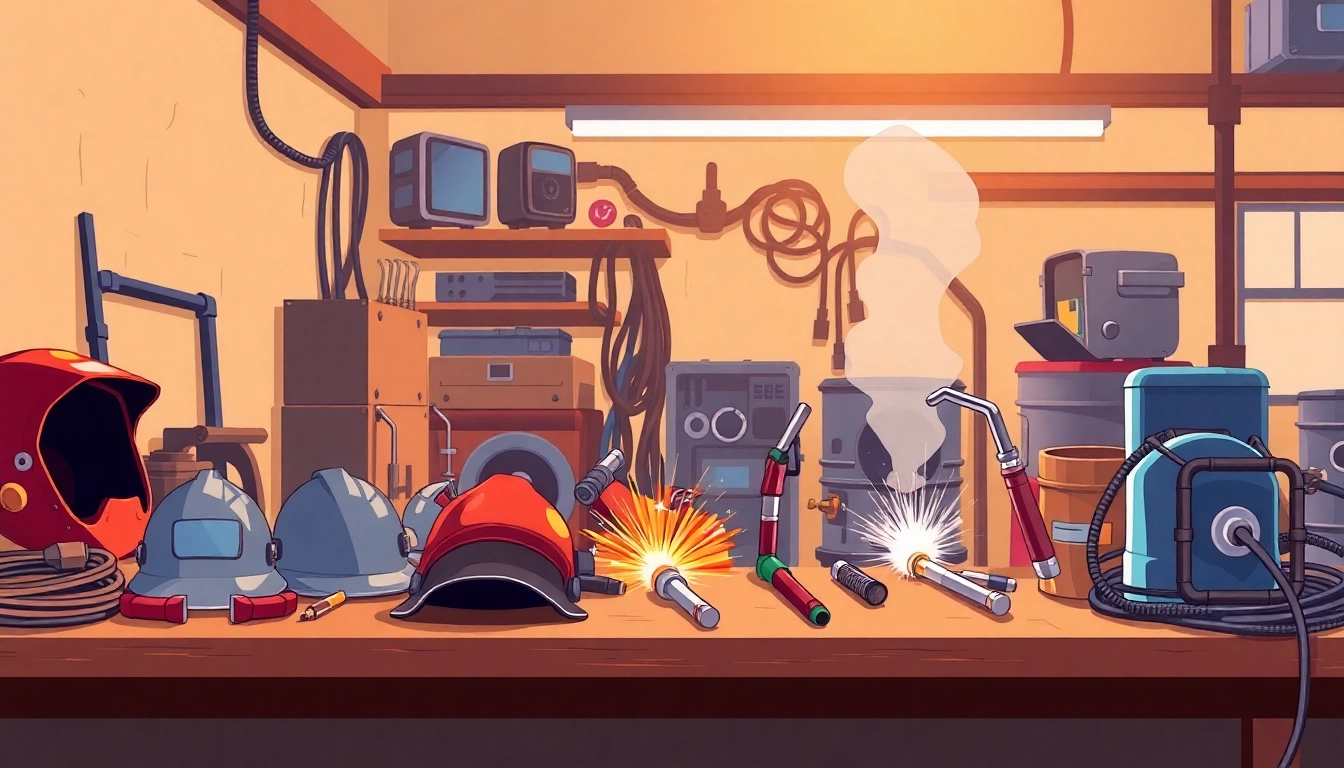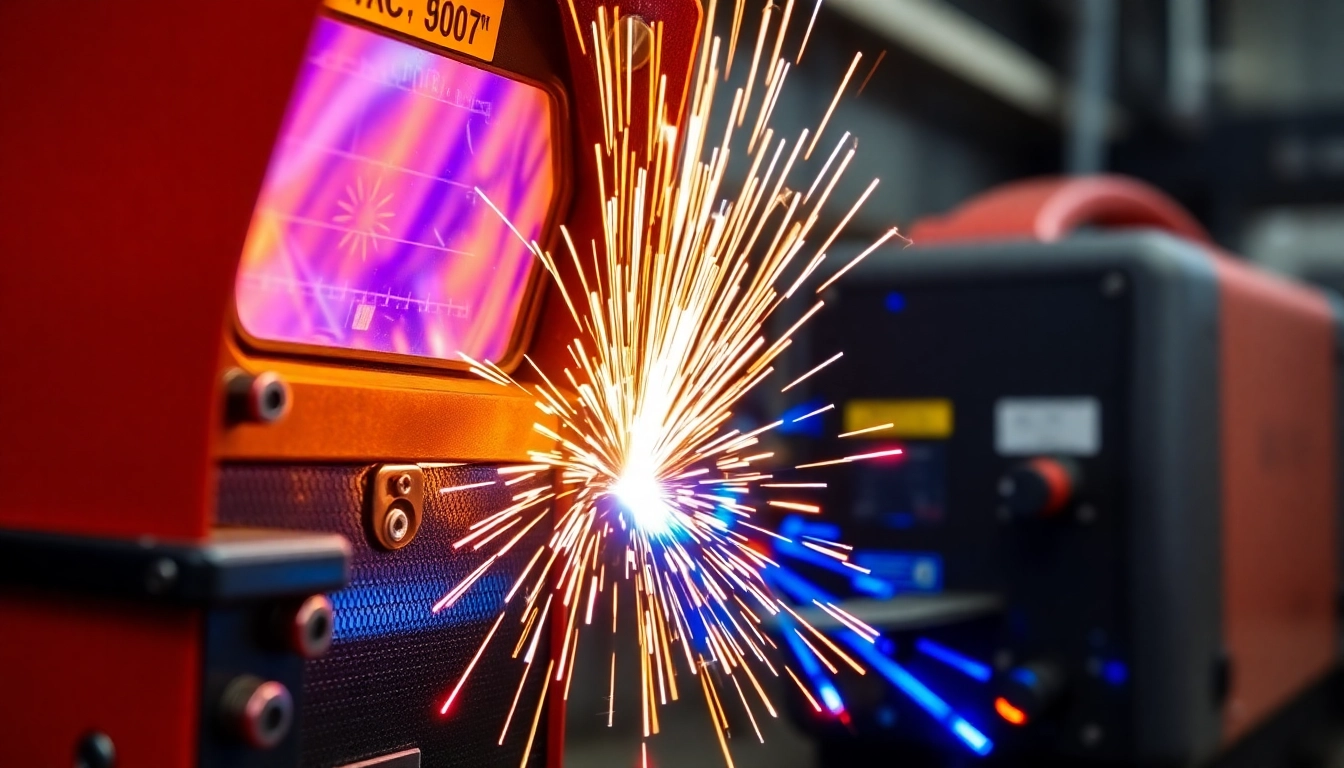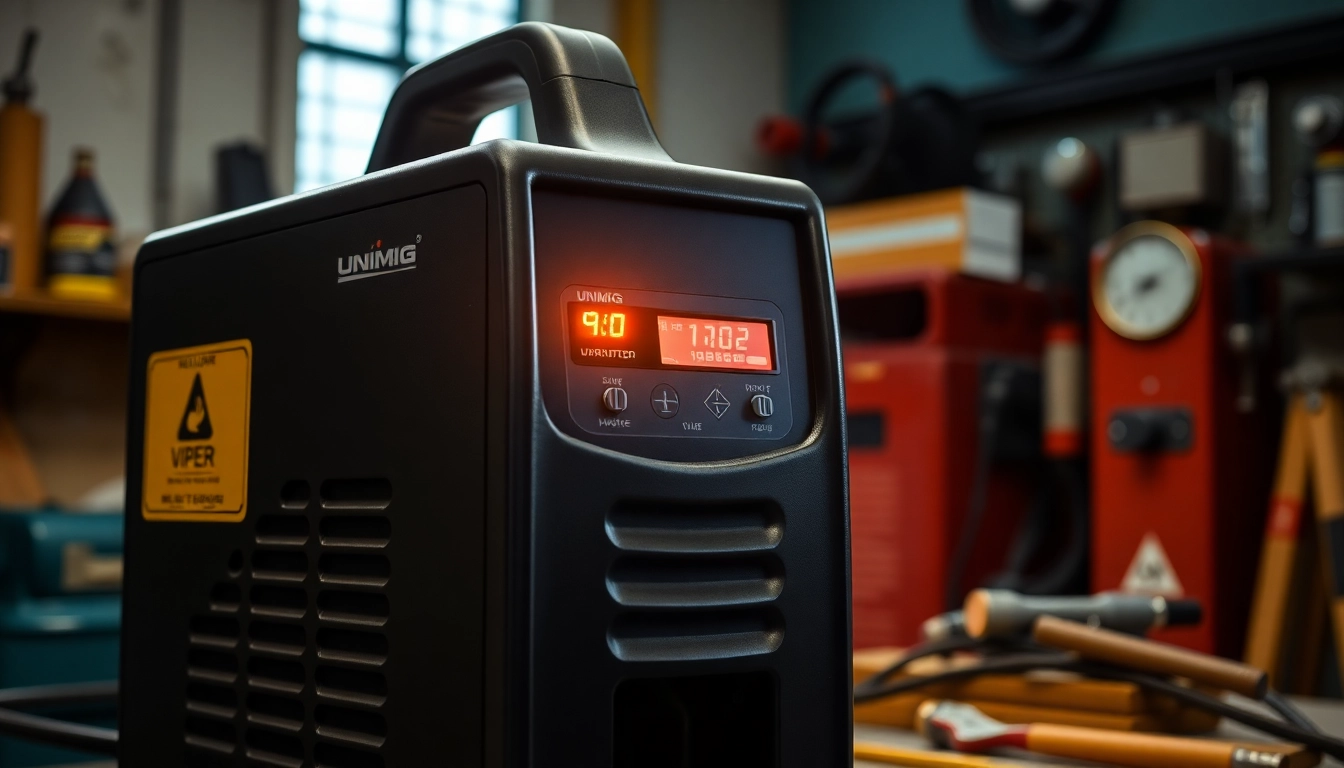Whether you’re a professional welder or a DIY enthusiast, finding the right welding supplies near me can make all the difference in the quality and safety of your work. This guide will explore everything you need to know about sourcing welding supplies locally, the types of equipment available, maintenance tips, and useful strategies for finding the best deals. Let’s dive in!
Understanding Welding Supplies Near Me
What Types of Welding Supplies Are Available?
Welding supplies encompass a wide range of tools and materials essential for various welding jobs. These can be categorized into several types:
- Welding Machines: This includes MIG, TIG, Stick welders, and plasma cutters designed for specific welding techniques.
- Electrodes: Filler materials used to create the weld and come in many different types depending on the welding method.
- Welding Gas: Essential for processes like TIG and MIG welding. Common gases include argon and acetylene.
- Protective Gear: Helmets, gloves, and protective clothing to ensure safety during welding.
- Tools: Clamps, grinders, and cutting tools that are necessary for preparing materials for welding.
Why Local Availability Matters
Local availability of welding supplies can significantly impact your efficiency. Having a supplier nearby means accessing the equipment you need quickly, especially when unexpected repairs arise. Furthermore, local suppliers often offer immediate support, which can prove invaluable for complex projects.
Benefits of Shopping for Welding Supplies Locally
Shopping for welding supplies locally offers several advantages:
- Support Local Business: By purchasing from local suppliers, you’re supporting the community.
- Immediate Access: Avoid shipping delays and receive products immediately.
- Expert Advice: Local experts can provide tailored recommendations based on your specific needs and projects.
- Opportunity for Hands-On Assessment: Inspect products physically before purchase to ensure quality and suitability.
Essential Welding Equipment for Your Needs
Common Tools and Their Uses
Let’s break down some of the most common welding tools and what they’re used for:
- MIG Welder: Utilizes a wire feed to quickly weld metal, ideal for beginners and thin materials.
- TIG Welder: Offers more precision and control, perfect for intricate projects and thicker materials.
- Arc Welder: Commonly used in construction for strong welds, particularly in structural applications.
- Plasma Cutter: Allows for cutting pieces of metal precisely and efficiently.
- Grinder: Used for smoothing out edges and cleaning welds post-process.
Sourcing Quality Filler Metals
When sourcing filler metals, consider the type of welding you’ll be doing. Filler metals may include:
- Welding rods
- Solid and tubular wires
- Filler plates
Choosing high-quality filler metals can prevent defects and ensure stronger joints. Always check for AWS (American Welding Society) certification markings to ensure quality.
Safety Gear You Can’t Ignore
Safety must always be a priority in welding. Essential safety gear includes:
- Welding Helmet: Provides crucial eye protection from the intense light and UV radiation.
- Gloves: Heat-resistant gloves safeguard against burns and sparks.
- Protective Clothing: Flame-resistant clothing that covers the body to prevent burns.
- Aprons and Sleeves: Added protection against spatter and heat.
Locating the Best Welding Supplies Near Me
How to Use Online Tools to Find Local Suppliers
With the rise of digital marketplaces, finding local welding supplies has never been easier. Here are a few steps to effectively use online tools:
- Search Engines: Use specific search terms such as “welding supplies near me” or “welding supply stores in [your location].”
- Google Maps: Utilize Google Maps to find nearby suppliers, read reviews, and view ratings.
- Local Business Directories: Websites like Yelp or Yellow Pages can provide contact information and additional insights.
Benefits of Visiting Physical Stores
While online shopping offers convenience, visiting physical stores for welding supplies provides unique benefits:
- Hands-On Experience: You can assess product quality and fit for your specific needs.
- Immediate Answers: Speak with knowledgeable staff who can provide instant support and recommendations.
- Local Connections: Build relationships with local suppliers which can lead to better prices or exclusive deals.
Comparing Prices and Services
Price comparison is essential when shopping for welding supplies. Here are effective strategies:
- Visit Multiple Stores: Don’t settle for the first quote; visit several suppliers to compare prices and services.
- Ask About Fast Delivery Options: Some local suppliers may offer same-day delivery which can provide immediate solutions to urgent needs.
- Look for Bundle Deals: Many suppliers offer packages that include multiple supply types at a reduced rate.
Buying Guide for Welding Supplies
Identifying Quality Products
When purchasing welding supplies, quality is paramount. Signs of quality products include:
- Certifications and compliance with industry standards.
- Brand reputation and reviews from past customers.
- Durability and material specifications that suit your welding requirements.
Understanding Reviews and Recommendations
Researching reviews for products and suppliers can provide invaluable insights. Follow these guidelines:
- Seek out reviews from reputable sources and industry professionals.
- Consider both positive and negative feedback to gauge product reliability.
- Ask for recommendations in welding forums or local communities to gather firsthand experiences.
Negotiating with Suppliers for Better Deals
Never be afraid to negotiate when buying supplies. Here’s how to effectively negotiate:
- Know Your Market: Understand the average prices for the supplies you want to buy.
- Present Your Case: Share your budget constraints and ask for discounts for larger purchases.
- Build Long-Term Relationships: Establishing rapport with suppliers can lead to better deals in the future.
Maintenance and Care for Your Welding Supplies
How to Maintain Welding Equipment
Proper maintenance extends the lifespan of your welding equipment. Key maintenance tips include:
- Regularly clean welding machines, especially the nozzles and contact tips.
- Inspect all cables and connections for signs of wear.
- Keep equipment in a dry and secure location to avoid damage.
Tips for Prolonging the Lifespan of Supplies
To ensure your supplies endure, consider these methods:
- Rotate stock to use older supplies first.
- Control the environment where tools are stored, ensuring it’s free from moisture and excessive heat.
- Perform routine checks and necessary repairs to avoid larger future issues.
Proper Storage Solutions for Welding Gear
Storing welding gear in an organized manner prevents damage and improves accessibility. Here are some recommendations:
- Use rugged toolboxes for transportable gear.
- Consider shelving units for larger items and ensure they are accessible.
- Label storage containers for easy identification of supplies.















Leave a Reply